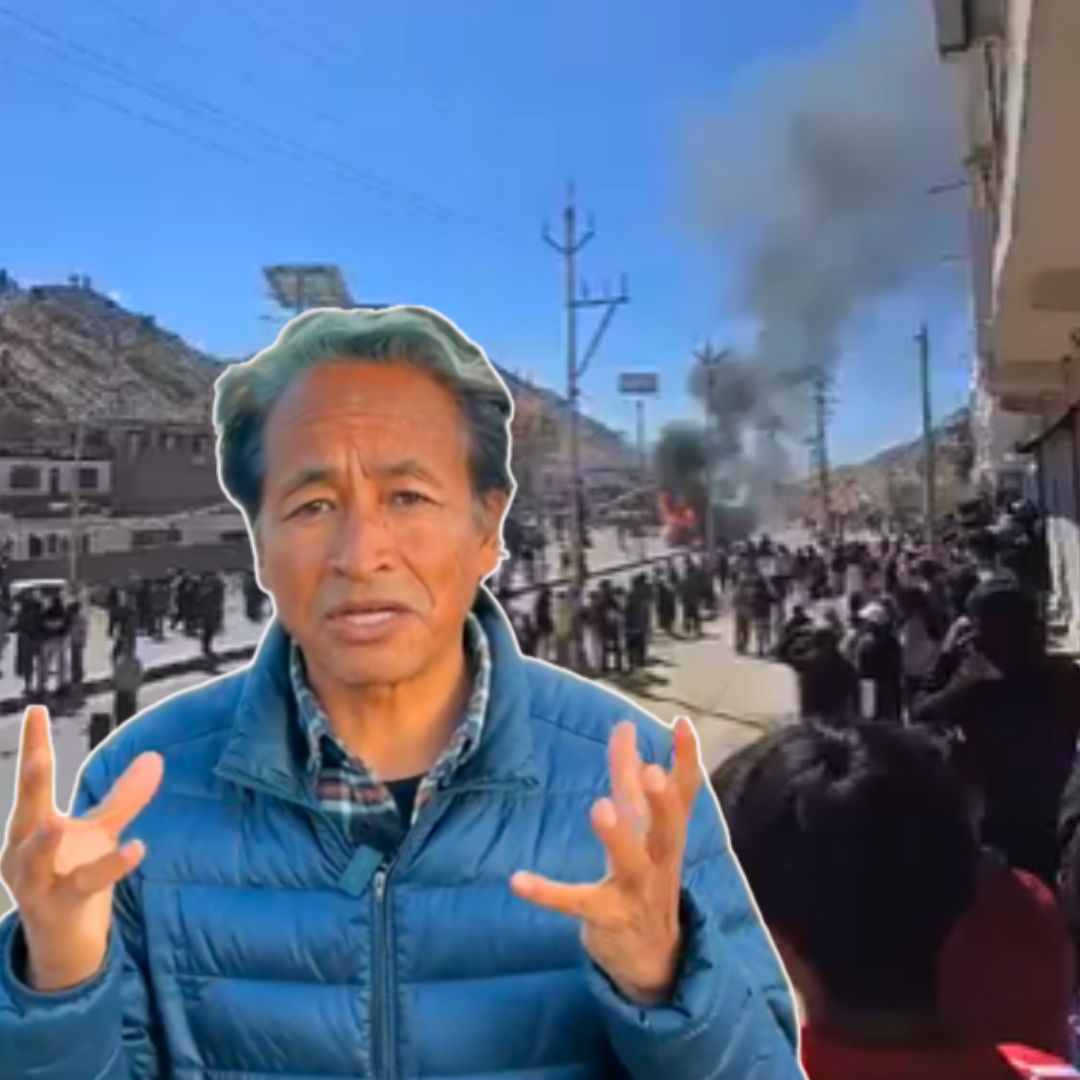Activist Sonam Wangchuk was arrested by Leh Police on Friday, days after violent protests in Ladakh left at least four dead and over 90 injured. The protests, led by Wangchuk along with the Leh Apex Body (LAB) and Kargil Democratic Alliance (KDA), demand full statehood and Sixth Schedule inclusion for Ladakh.
The government blamed Wangchuk’s “provocative speeches” for inciting the unrest, though he denies the allegations and called for peaceful dialogue. The Ministry of Home Affairs also cancelled the FCRA licence of Wangchuk’s NGO, Students Educational and Cultural Movement of Ladakh (SECMOL), amid the probe into alleged violations.
Violence Erupts Amid Statehood Demand
The protests, which started peacefully as a shutdown demanding constitutional protections, escalated into violence on September 24 in Leh. Mobs set fire to the BJP office, police vehicles, and private property, resulting in four fatalities and many injuries including police personnel.
Authorities imposed curfews and banned assemblies to restore order. Wangchuk was arrested following the unrest, accused by officials of inciting mobs through his speeches referencing Arab Spring and youth protests in Nepal. The Leh administration enforced strict security measures amid heightened tensions.
Background: A Struggle for Autonomy
Sonam Wangchuk, a Ramon Magsaysay Award-winning engineer and educationist, has long been a prominent face of Ladakh’s political activism, campaigning for Sixth Schedule status to protect the region’s fragile ecology, tribal culture, and autonomy.
The demands intensified after Ladakh was reorganised as a Union Territory in 2019. The government stated it has engaged in multiple formal and informal talks with the Leh Apex Body and Kargil Democratic Alliance but accused some leaders of sabotaging negotiations for political gain.
The Logical Indian’s Perspective
While ensuring law and order during unrest is critical, dismissing the protestors’ genuine aspirations risks deepening alienation and conflict.
The Logical Indian urges all stakeholders to prioritise peaceful dialogue and transparent engagement to uphold democracy and social harmony. True progress demands we listen with empathy to peoples’ political and cultural concerns while fostering coexistence.












